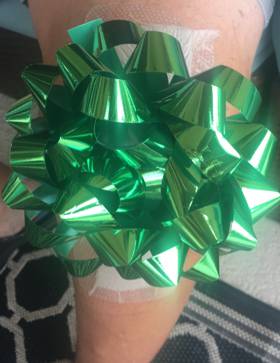Live Better Longer
![[]](images/left_chunk.jpg)
I was quoted in
the following:
Experience Life Article about "Fearless Aging"the following:
April, 2016 issue of AARP Bulletin
New York Times article
about retirement coaching .
Follow my national
retirement blog:

BLOG ARCHIVE
- The Joys of Slow Travel
- Cancer Lessons
- Create Your Own Longevity Village
- Talking About Aches and Pains
- Planning for Retirement
- Priming for Positive Aging
- Can We Disagree Politically and Still Be Friends?
- It's Never Too Late to Learn a New Language
- The Most Important Communication Skill
- Flexible Retirement
- What a New Knee Taught Us About Growing Older
- Retirement: Hopes and Realities
- Work/Life Balance in Retirement
- Semi-Retirement: What is Your Story?
- Aging: Four Game Changers
- Different Ways to Create Family
- Retirement Advice for David Letterman
- Running 13.1 Miles on "Old Knees"
- Is Busy Good Enough
- New Kid on the Assisted Living Block
- When a Tree Falls
- The Last Straw
- Catching Good Habits
- Risky Business
- You Can Go Home Again
What a New Knee Taught Us About Growing Older
January 4, 2016
Husband Paul got a new knee for Christmas. No house guests or trips in the near future and a slower work time for Paul made Mid-December the best
time to set aside a few months for surgery and recuperation.Before the surgery, we naively planned to enjoy his months of down time reading books and watching movies. After the surgery, we discovered that recovery and healing involved more than the rest and relaxation we had envisioned. We were amazed at how much time it took to do physical therapy, meet with caregivers and accomplish simple tasks like taking a shower.

Lessons Learned
Be respectfully honest. After a few tense post-surgery days, we both acknowledged that Paul wasn't the best patient, and I wasn't the best nurse. We committed to trying harder and are mostly doing a better job in our new roles.
Stay calm. Things don't always go as planned. After the pharmacy lost Paul's pain medication prescription, I wanted to rant about his pain and how we needed that medication now. But I knew that would only make the situation worse, so I tried to stay calm and kept talking with them until they found the prescription and filled it.
Follow up. When the expected scheduling calls didn't come from the home health care providers, I called the company- numerous times. Although I felt like a pest, I kept calling. The first two weeks of therapy after knee-replacement surgery are critical to a good outcome, so I knew one missed day was not good. Later we discovered that the hospital had given the home-care agency the wrong discharge date, so their schedules were one day behind. After at least five phone calls, the care providers arrived on the right day and gave Paul the care he needed.
Give an extra dose of love. Pain and illness can really mess with your emotions, and neither the patient nor the caregiver feels very loveable. An extra hug or "I love you" really helps make the tough times easier.
A wise friend in my positive ageing book group once said, "Growing older together is not for wimps." Hopefully, our dress-rehearsal will help us be better prepared when the time comes.
